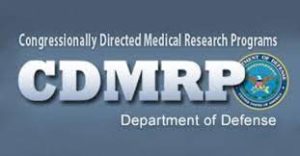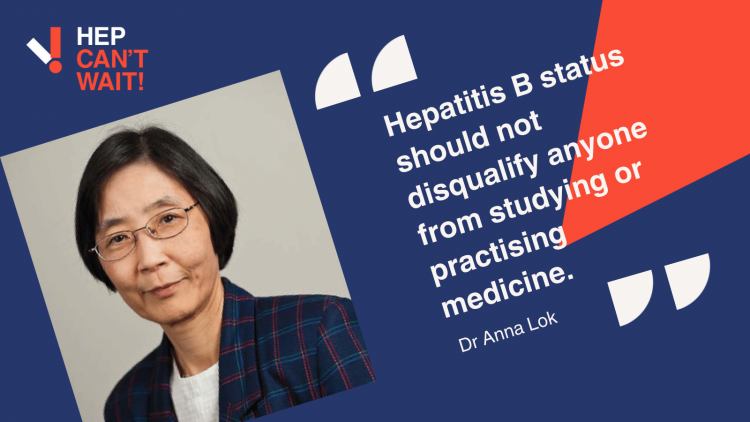
Funding Opp for HBV Research: U.S. Department of Defense Congressionally Directed Medical Research Programs
POSTED ON: 20 Apr, 2022


“Every year, more than 800,000 people worldwide die from hepatitis-B-related liver disease — a greater toll than from malaria. But efforts to curb transmission and discover a cure are picking up steam.”
Article Features & Comment
Authors:
Conan Chua, Aman Mehrotra, Dr. Adam Gehring,
Toronto Centre for Liver Disease, Toronto, Ontario, Canada
During a traditional FluroSpot assay, low HBV Specific T cell frequencies have hindered effective ex vivo analysis. We overcame this obstacle to measure ex vivo T cell responses in CHB patients, by modifying the key variables of cell number and the peptide pulsing method to improve ex vivo detection of HBV-specific T cells.
You can access the full protocol here:
![]()
ICE-HBV is working on an international collaborative research review project about HBV management in resource-limited settings (RLS), led by Daryl Lau and Manal El Sayed. The main objective of the project is to improve access to/quality of HBV care in RLS and reduce HBV mortality and incidence.
We are therefore inviting individuals and organizations working on HBV in resource-limited settings to complete a survey developed to elaborate improved Point-of-Care models for HBV management in RLS. Your input will inform our work on this pressing topic. The survey should take around 15-20 minutes and can be found here:
Ideally, we would like to receive survey results by 24 February, 2022.
The result of this survey and our work will lead to a position paper on this topic. There is a strong need for a comprehensive, effective and practical HBV management guidance focused on resource-limited settings. Such guidance would support a public health approach to HBV elimination, by encouraging the roll-out and uptake of prevention, testing, and treatment. Through this work, we also aim to contribute to the WHO guidelines revision process currently taking place.
If you have any questions or issues with the survey, feel free to contact ICE-HBV Program Associate Jennifer Pampolina at jpampolina@excolo.com.sg
Feel free to forward this message to colleagues and organizations that also work on HBV in RLS.
Thank you in advance for your help and important contribution to this project.
On 1 February 2022 ICE-HBV, together with the Coalition for Global Hepatitis Elimination organized the webinar Bridging Science & New Therapeutics for HDV Elimination. The webinar, chaired by Maura Dandri (ICE-HBV), Massimo Levrero (ICE-HBV), and John Ward (CGHE/ICE-HBV), looked at the following topics:

Abstract Submission Deadline: 17 June 2022 at 23:59 SAST
As COLDA is bilingual and will offer translation (English-French), abstracts may be submitted in either English or French.
The registration fee will be waived for all abstract presenters that qualify as either academia from Resource-Limited Settings or Young Investigators. You can read more about these criteria on the conference website.
Organized by the SHARE Global Health Foundation in close collaboration with regional societies, COLDA 2022 aims at empowering healthcare professionals (HCPs) to diagnose, prevent, treat, and achieve a cure for liver diseases for the benefit of patients in Africa. This being the 5th COLDA, we continue to cultivate a platform that provides a unique opportunity for clinicians, researchers, policymakers, industry representatives, and other healthcare professionals in the African region. Together with support from an international community of experts, they will exchange knowledge on the latest developments and achievements in the management of viral hepatitis and liver disease with a special focus on the African context.
We aspire to provide you with a highly scientific and educational abstract-driven conference consisting of keynote speeches, state-of-the-art lectures, oral and poster abstract presentations, roundtable discussions, and debates with ample time for discussion.
We are certain that the conference will act as a catalyst for translating science into clinical practice while promoting medical education in the field of hepatology and setting up collaborations within the African region. Everyone will have an exceptional opportunity to share and acquire knowledge, and experience a wide spectrum of topics related to liver disease.
We’re proud to announce the release of a new information page for Viral Hepatitis Commodities Access in Resource Limited Settings. The page aims to increase awareness and information on cost and procurement within the hepatitis community, in order to increase access to viral hepatitis medicines and technologies in low-and-middle income countries, including HBV birth-dose vaccine, HBV treatment and HCV cure uptake.
On 24 November 2021 ICE-HBV, together with Liver Patients International organized the Webinar HBV Cure 101 with a focus on Europe. The purpose of the event was to bring together scientists researching Hepatitis B and the community that is affected.
Click on the timestamps to skip ahead to specific sections of the webinar.
Across the world, stigma and discrimination impact people living with hepatitis B, with careers and personal relationships affected. The impact of stigma and discrimination also affects families and communities and negatively impacts testing strategies. The Stigma Report released by WHA brings together the latest research on stigma and discrimination and the stories of the people and communities affected by hepatitis B. The report highlights the need to address hepatitis B stigma and discrimination so that no one has to suffer the additional consequences of living with hepatitis B.
Danjuma Adda, president-elect of WHA, whose own story features in the report, said. – “Stigma and discrimination can have a huge impact on the lives of people living with hepatitis B. It impacts our rights to work, to travel and to live our lives. The Stigma report shows that it is time to tackle this issue to protect the rights of the millions of people living with hepatitis B. We can no longer suffer in silence; the time for action is now.”
Two hundred ninety-six million people live with hepatitis B worldwide, and for many, their lives are made infinitely more challenging by stigma and discrimination. In a 2017 survey of WHA members, 93% of respondents indicated that hepatitis-related stigma and discrimination impacted people in their countries, yet little is being done globally to tackle the issue.
Cary James, CEO of the World Hepatitis Alliance said. – “This new report highlights the real need for action to tackle stigma and discrimination. Decision-makers must work alongside the people and communities impacted by hepatitis B, stamp out the stigma and discrimination, and support the people and communities affected. We can’t wait for action; stigma harms people every day and stops people from coming forward for testing and screening services, causing late diagnosis of hepatitis B, leading to liver cirrhosis and liver cancer. Early diagnosis means that effective care and treatment can be made available. Decision-makers must understand the need to address stigma and discrimination as part of efforts to eliminate hepatitis B.”
The new report gives clear policy suggestions to assist decision-makers in addressing hepatitis B stigma and discrimination. Key to the success of these is the engagement of the people and communities impacted by hepatitis B.
Download the report at www.worldhepatitisalliance.org/stigma
A webinar in December will bring together experts and people impacted by stigma and discrimination to discuss the issue and the actions needed to tackle stigma and discrimination. Sign up for the webinar at www.worldhepatitisalliance.org/registration

About WHA
The World Hepatitis Alliance is an international network of over 300 organisations in 100 countries. WHA represents the 350 million people living with viral hepatitis worldwide. WHA strives to support and promote the voices of the people and communities affected by viral hepatitis, to raise the profile of viral hepatitis and to establish comprehensive hepatitis strategies in all countries. Through better awareness, prevention, care, support and access to treatment, the ultimate goal is to work with governments to eliminate these diseases by 2030.
Find out more at www.worldhepatitisalliance.org